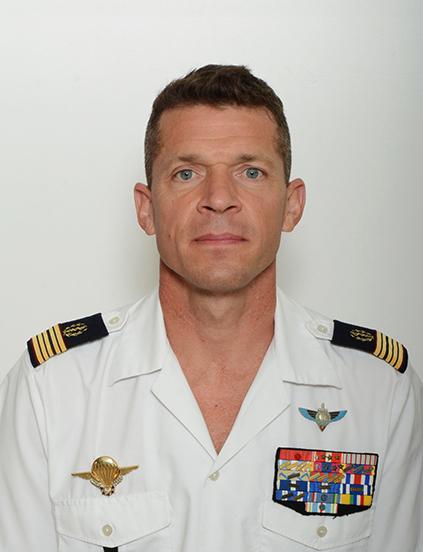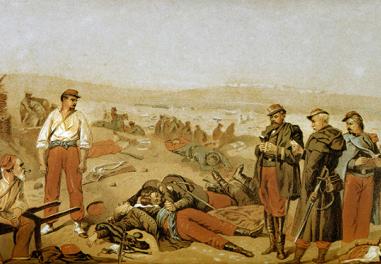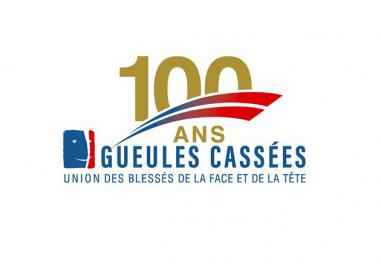Luc Aigle, head physician
Treating wounds and saving lives. This is what head physician Luc Aigle did during the multiple field operations he has participated in. Now dean at the Ecole de Lyon, he is training the next generation of army medics.

Why did you enlist and why did you choose this particular field?
My father and grandfather were both army medics. During my final years at Saint-Cyr l’École military academy, I saw where my future lay, it was a calling. Serving my country and helping others are values instilled in me by my father and that I also felt it was my duty to pass on to my son when he joined Lyon’s military medical school. That makes him the fourth generation to have this vocation in our family.
You took part in many field operations. Which countries were you stationed in?
I went on almost twenty interventions. Before I graduated, I went to Senegal, Vietnam and Chad. After that, I returned twice more to Chad and made three visits to the Central African Republic (CAR), the same to Côte d’Ivoire, then Macedonia, the former Yugoslavia, Haiti, Libya, twice in Afghanistan and Mali, plus Mauritania and Burkina Faso. I also spent two years in Djibouti where I took part in several operations. I basically had the chance to take part in almost all of the major French interventions over the last twenty years, with the exception of Lebanon.
What were your main duties during these operations?
I was the army company doctor for the first part of my career, essentially the GP of the troops. In this role, my main duties consisted of treating army personnel, supporting military operations and doing preventive work (hygiene measures for soldiers, water, food, camps, etc.). In 2014, I was appointed medical director of Operation Sangaris in the CAR. I was head physician for the whole medical chain. In 2015, I was head physician for a tactical combined-arms group in Chad (2nd Foreign Parachute Regiment, FPR) and in 2018 head physician for a tactical desert group, also with the 2nd FPR. I’d returned from Mali where I held the position of assistant medical theatre director, which meant myself and the director coordinated the staff, management the health environment and advised the leadership.
What was the most common type of treatment you administered?
While the combat that takes place today isn’t high intensity, there are war-wounded of varying numbers depending on the type of intervention and confrontation with the enemy. At the moment, the main injuries are caused by exploding mines and IEDs. There are also very regularly injuries inflicted by small arms following close-up combat. But fortunately none of this is the daily reality for the troops or the medics. We perform an important portion of the general medical activity, from general medicine in tropical environments, tropical medicine and medical emergencies that range from renal colic to serious infections and heatstroke, etc. We also deal with work accidents. One of the most serious wounded patients we had to treat in Mali this spring had a metal bracket in the head after a tyre burst.
Very few soldiers treated die from their wounds. This is for multiple reasons: enhanced protection of soldiers, the fact there is medical assistance close by to treat any injuries just after they occur (both on the ground and in surgical facilities) and an early evacuation chain.
What do you think are the essential qualities of the army medic?
Well prepared, both medically and physically. In technical terms, we learn a huge amount at school. The students are thus capable of administering excellent medicine in the most basic of conditions using minimum resources. Plus, the fitter and more trained you are, the better you can tolerate distance, fatigue, physical exertion, stress and so on. You need to be able to adapt and react quickly in tough situations.
Where are the main areas that could be developed to provide better treatment for the war wounded today?
The armed forces health service is already incredibly effective and responds extremely swiftly when treatment is needed, to the point that I can't see how they’d do much better. A wounded patient is back in France within 24 hours. Few armies can match that. Areas where we can improve mostly concern blood transfusion at the front. Stopping bleeding (external), managing flight paths, etc. are things we excel in. When we are dealing with a stomach or thorax wound, getting them to a surgeon is paramount. Nevertheless, giving blood to replace lost blood, high quality whole blood in particular, is one of the best things we can do. Efforts to prevent hypothermia, which causes coagulation problems, is also a challenge
Before you go, is there an anecdote that particularly sticks in your mind you can share?
Back in 2006, I was in a military intervention with commandos in Africa. One guy was several injured. When I got to him, we were under fire from every direction. He was bleeding profusely from the legs and I had to apply two tourniquets. To see the wounds more closely, I used scissors to open his combat trousers. We were in really tall elephant grass. After cutting one trouser leg, I lost the scissors in the high grass. A comrade lent me his scissors so I could the second leg open. We finally managed to get him to a stable enough state that we could evacuate him by helicopter then plane. From the deepest part of the brush, wounded at 1700 hours, he was on an operating table in N’Djamena in Chad by 2200 hours. The following morning, the surgeons called me to say that on top of the leg injuries, they’d found another unexplained one in the abdomen. They took a good look but couldn’t find the cause. I couldn’t help as I’d never spotted his wound in the first place. When the patient woke up, he told us that I’d stabbed him in the stomach while cutting his trousers open. In the heat of action, the long blade must have gone further than I’d planned, without causing any real damage thank goodness. Only he knew that I’d half stabbed him while trying to save him.
Articles of the review
-
The file

Treating the war-wounded
How the wounded are treated on the battlefield since the Franco-Prussian war in 1870 to the most recent interventions has changed extensively, both from an organisational perspective to the ways in which treatment, and what treatment, is administered by health care specialists in the army. In this s...Read more -
The event

"100 ans pour les "Gueules Cassées""
Read more -
The figure
Musée du Service de Santé des Armées
Created during the First World War at the Val-de-Grâce Military Hospital, the Musée du Service de Santé des Armées (MSSA – the armed forces health service museum) presents the history of military medicine. Most importantly, it gives visitors an insight into why and how it was founded and its mission...Read more

